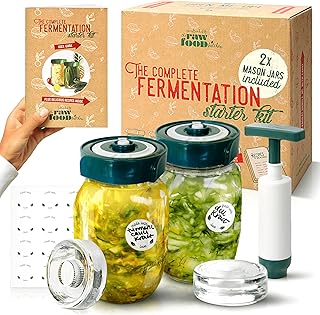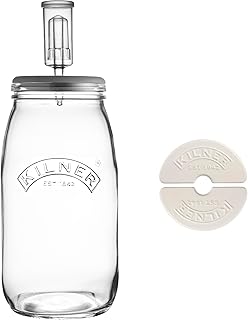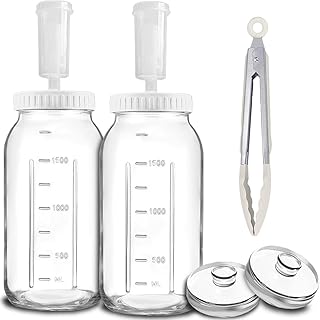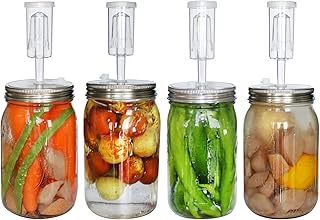Home fermentation has become a popular trend, offering a cost-effective way to enjoy the unique flavors and health benefits of fermented foods. The process involves harnessing the natural bacteria present in fruits and vegetables to convert sugars into acids, creating the tangy taste and probiotic qualities that make these foods so appealing.
While store-bought fermented products can be pricey, fermenting at home is a fun and straightforward process that requires minimal equipment. All you need are basic items like a knife, fresh produce, jars, and salt or sugar to kickstart your fermentation journey.
When it comes to selecting the right salt for fermentation, opt for high-quality, preservative-free options like Maldon salt or Himalayan Pink Salt. These salts support the growth of beneficial bacteria essential for the fermentation process.
Choosing the right jars for fermenting is crucial to prevent spoilage and ensure a successful fermentation. Glass jars are ideal for small-scale fermentation projects, while Kilner jars offer durability and come in various sizes to suit your needs.
Keeping the fermenting ingredients submerged beneath the brine is key to preventing spoilage. Using weights like pickle pebbles or improvised options such as freezer bags filled with water can help maintain the proper fermentation environment.
For fermenting drinks like kombucha, muslin cloths and sieves are essential tools to allow air circulation during the fermentation process. Glass bottles designed to withstand pressure, such as flip-top bottles, are ideal for storing fermented beverages.
While some tools like mandolins may seem necessary for precise slicing, a sharp knife is sufficient for most fermentation projects. Similarly, sterilization equipment is not required, as a clean environment is more important than a sterile one for successful fermentation.
Investing in a good fermentation recipe book can provide valuable guidance, but there are also plenty of online resources and guides available to help beginners navigate the fermentation process. Storing your fermented creations in the refrigerator is essential to maintain their quality and prolong their shelf life.
Embracing home fermentation not only allows you to create flavorful and nutritious foods but also offers a rewarding DIY experience. By assembling the right tools and ingredients, you can embark on a culinary adventure that celebrates the art of fermentation.
📰 Related Articles
- Unlock DIY Magic: Create Mesmerizing Effects at Home
- Maximize Home Value: Smart Renovation Tips from Real Estate Experts
- Master Test Cricket Betting: Expert Tips for Informed Wagers
- Master Oblivion Remastered with Expert Tips and Strategies
- Master Hogwarts Legacy’s Interior Decorating Quest with Expert Tips






